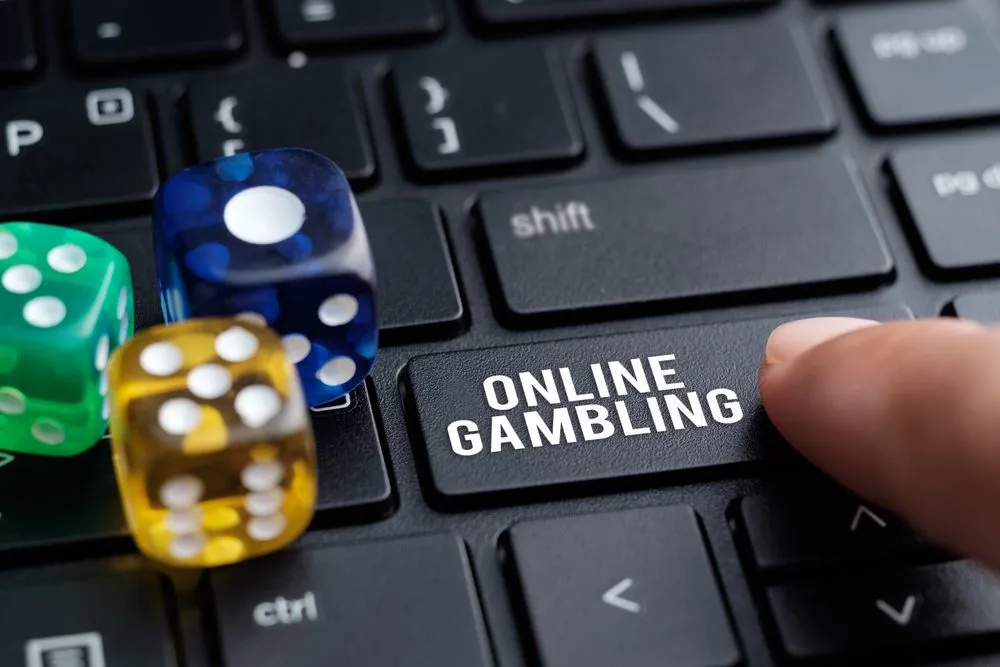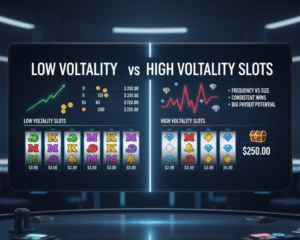Let’s face it—online gambling is exciting. The flashing lights, the adrenaline rush of a big win, the possibility of turning a small stake into something huge… it’s like a rollercoaster ride with your bank balance on the line. But just like any ride, you’ve got to buckle up and know when to get off.
Online gambling can be harmless fun, but if you’re not careful, it can spiral into something you never saw coming. That’s why staying in control is everything. Whether you’re spinning slots, doubling down on blackjack, or chasing that royal flush, these tips will help you enjoy the ride without letting the casino take the wheel of your life.
1. Know Why You’re Gambling—And Be Honest About It
Why are you here? For fun? Stress relief? Boredom? Trying to make some quick cash?
Be real with yourself. If you’re gambling to escape problems or earn a living, you’re heading into dangerous territory. Gambling should always be entertainment—not a solution. Once you start using gambling as a crutch, you’re more likely to lose control.
2. Set a Budget Before You Start (And Actually Stick to It)
This is the golden rule: Never gamble money you can’t afford to lose.
Before logging in, decide how much you’re willing to spend. Think of it as your “entertainment budget”—the same way you’d budget for a concert or movie night. Set it. Stick to it. Don’t top it up, even if you’re on a hot streak or trying to chase a loss. That’s when things go sideways.
Pro Tip: Use the deposit or loss-limit features many casinos offer. They’re there for a reason.
3. Use Time Limits So You Don’t Lose Track of Reality
Have you ever sat down to play a few hands of poker and suddenly—poof—three hours are gone? Yeah, it happens.
Set a timer before you start. Decide ahead of time how long you’ll play. When the timer goes off, step away. Take a walk. Hydrate. Reconnect with real life. Gambling can warp your sense of time, and that’s when it gets dangerous.
4. Don’t Chase Losses—You’re Not Due for a Win
Here’s the cold, hard truth: The odds don’t care about your feelings.
Just because you lost five rounds in a row doesn’t mean a win is “due.” This is called the Gambler’s Fallacy, and it’s a trap. Each spin, hand, or dice roll is a separate event with its own odds.
Chasing your losses only leads to bigger ones. If you’re down, walk away. Your wallet will thank you later.
5. Never Play on Credit or Borrowed Money
If you’re gambling with borrowed money or putting your losses on a credit card, hit the brakes.
This is where casual fun turns into real-life problems. Debts pile up fast, and the stress that comes with owing money can destroy relationships, careers, and even your mental health.
Think of it this way: if you wouldn’t borrow money to see a movie, why do it for gambling?
6. Avoid Gambling When You’re Emotional or Impaired
You wouldn’t drive a car angry or drunk—so why gamble in that state?
When you’re emotional, tipsy, or just not in a clear headspace, your decision-making goes out the window. Emotions cloud judgment, and that’s a surefire recipe for regretful bets. Make gambling a clear-headed activity only.
7. Celebrate Wins, But Don’t Let Them Cloud Your Judgment
We all love to win. That rush is unbeatable. But here’s the kicker—a big win can be just as dangerous as a loss.
Why? Because it gives you a false sense of control. Suddenly, you feel invincible, like you’ve cracked the code. Newsflash: the house always has an edge. Enjoy your win, take a breath, and maybe even cash out. Don’t give it all back trying to double it.
8. Use Gambling Tools and Self-Exclusion Features
Gambling Online casinos offer some surprisingly helpful tools—use them.
From deposit limits to self-exclusion, these features can be lifesavers. You can even set “cooling-off” periods where the site blocks your access temporarily. If you’re starting to feel like things are getting out of hand, these tools give you control with the click of a button.
9. Balance Gambling With Other Hobbies
If gambling is your only source of fun, that’s a red flag.
Make sure you’ve got other ways to unwind. Exercise, reading, hanging out with friends, gaming, music—anything that makes you feel good without risking your bank account. The more balanced your lifestyle, the less likely you are to slip into harmful habits.
10. Know the Signs of a Gambling Problem (And Get Help If You Need It)
This one’s serious. If you’re hiding your gambling from loved ones, skipping bills to play, or feeling anxious when you’re not gambling—you might need to talk to someone.
Here are a few warning signs:
-
Gambling more than you planned
-
Feeling guilty or ashamed about your losses
-
Lying about how much time or money you’ve spent
-
Using gambling as an emotional escape
If any of this sounds familiar, reach out. There’s no shame in asking for help. Organizations like Gamblers Anonymous or national helplines offer confidential support that can change your life.

11. Practice Mindful Gambling
Mindfulness isn’t just for yoga. Try being more aware while you Gambling Online.
Ask yourself things like:
-
“How am I feeling right now?”
-
“Why am I continuing to play?”
-
“Is this still fun, or am I just trying to recover losses?”
Checking in with yourself can prevent impulsive decisions and help you stay grounded.
12. Keep Records of Your Wins and Losses
Ever finish a session thinking you’re “about even,” only to later realize you lost a lot more? You’re not alone.
Start keeping a simple log. Write down how much you deposited, how much you withdrew, and how long you played. This helps bring clarity to your gambling habits and stops you from fooling yourself.
13. Share Your Gambling Goals With a Friend
Having someone keep you accountable can work wonders.
Tell a friend your weekly gambling limit, or ask them to check in on how you’re doing. When you know someone’s watching, you’re less likely to slip into bad habits. It’s like having a gym buddy—but for staying financially fit.
Read More: Casino Games That Work for Short Breaks
Conclusion: Gambling Smart Is the Real Win
Look, gambling online can be a blast. But it only stays fun when you’re the one calling the shots—not the games, not the wins, and definitely not the losses.
Stay in control, set limits, listen to your gut, and walk away when it’s time. Remember, the best gamblers aren’t the ones who win the most—they’re the ones who know when to stop.




